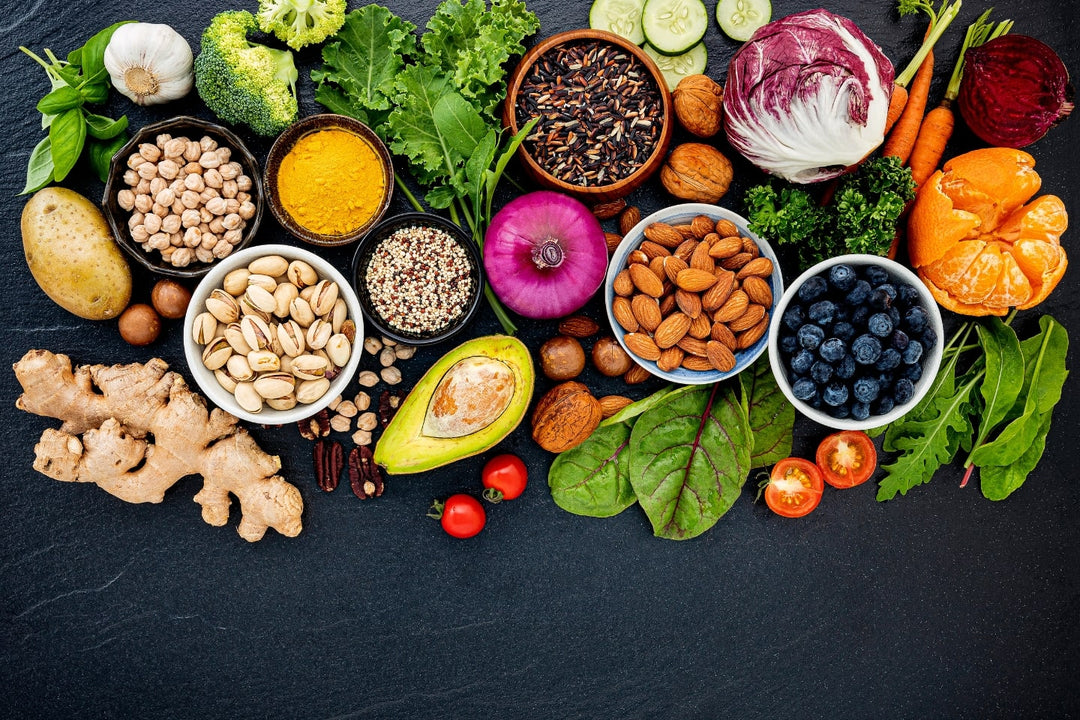The Gut-Brain Connection: How Gut Health Influences Mental Well-Being

The idea that "you are what you eat" extends far beyond physical health—it also applies to mental well-being. Research increasingly supports the powerful relationship between gut health and brain function, a connection known as the gut-brain axis. The health of your digestive system doesn’t just determine how well you absorb nutrients; it plays a crucial role in regulating mood, stress levels, cognitive function, and even long-term mental health conditions.
For years, mental health was treated separately from physical health, but science now reveals that gut health is deeply intertwined with brain health. The microbiome, the diverse community of bacteria and other microbes in the gut, plays an essential role in producing neurotransmitters, reducing inflammation, and communicating with the central nervous system. When the gut is in poor condition—due to a lack of beneficial bacteria, chronic stress, or poor diet—it can lead to anxiety, depression, brain fog, and in extreme cases, even neurodegenerative diseases.
The Gut-Brain Axis: A Two-Way Communication System

The gut-brain axis is a bidirectional communication system linking the gastrointestinal tract with the central nervous system. This means that what happens in your gut directly influences your brain and vice versa. The vagus nerve, one of the largest nerves in the body, serves as a key communication pathway between the gut and brain, transmitting signals that regulate digestion, mood, and cognitive function. This nerve allows for constant dialogue between the two, affecting how we feel, think, and process emotions.
The real stars of the gut-brain axis are the trillions of microbes that inhabit the intestines. These microbes—bacteria, fungi, and viruses—are not just passive passengers; they actively produce neurotransmitters like serotonin, dopamine, and gamma-aminobutyric acid (GABA), which are critical for mood stability, motivation, and relaxation.
- Serotonin: Over 90% of the body's serotonin (the "feel-good" neurotransmitter) is produced in the gut. A well-balanced gut microbiome ensures proper serotonin production, which supports mood, sleep, and emotional stability.
- Dopamine: Associated with motivation, reward, and pleasure, dopamine production is also influenced by gut bacteria. Low dopamine levels can contribute to depression, fatigue, and lack of motivation.
- GABA (Gamma-Aminobutyric Acid): This neurotransmitter promotes calmness and relaxation. A well-functioning gut microbiome enhances GABA production, reducing anxiety and promoting mental clarity.
When gut health is compromised due to stress, poor dietary choices, antibiotic overuse, or an imbalance of gut bacteria, neurotransmitter production can be severely disrupted, increasing the likelihood of mood disorders, heightened stress responses, and cognitive decline.
Inflammation and Its Impact on Mental Health
Inflammation is a major player in mental health disorders. When the gut lining becomes damaged, often due to processed foods, excessive sugar, alcohol, or environmental toxins, it becomes permeable, allowing harmful substances to enter the bloodstream. This condition, known as leaky gut syndrome, triggers an immune response, leading to chronic inflammation throughout the body, including the brain.
- Increased Risk of Depression & Anxiety: Studies show that individuals with depression often have higher levels of inflammatory markers in their blood. Chronic gut inflammation can reduce serotonin and dopamine levels, increasing feelings of sadness, anxiety, and irritability.
- Cognitive Dysfunction & Brain Fog: When inflammation reaches the brain, it impairs neural communication, leading to difficulty concentrating, memory lapses, and mental fatigue. Many people with gut disorders like Irritable Bowel Syndrome (IBS) report increased difficulty focusing, reinforcing the gut-brain connection.
- Blood-Brain Barrier Compromise: The blood-brain barrier protects the brain from toxins. However, chronic gut inflammation can weaken this barrier, allowing harmful substances to reach the brain, potentially contributing to neurodegenerative conditions like Alzheimer’s and Parkinson’s disease.
How Gut Health Affects Stress & Emotional Resilience
Stress doesn’t just impact how you feel—it directly influences gut health, creating a cycle of poor mental and digestive health.
- Cortisol & Gut Microbiome Disruption: Chronic stress increases cortisol levels, which disrupts gut bacteria balance, leading to a weakened gut lining.
- Reduced Digestive Efficiency: Stress slows digestion, causing bloating, constipation, or diarrhea, making nutrient absorption less efficient.
- Increased Sensitivity to Anxiety & Depression: When gut bacteria become imbalanced, the body produces fewer calming neurotransmitters like serotonin and GABA, increasing stress, anxiety, and depression symptoms.
A healthy gut promotes emotional resilience by maintaining a balanced microbiome, optimizing neurotransmitter production, and reducing inflammation.
Ways to Improve Gut Health for Mental Well-Being
A strong gut-brain connection starts with gut-friendly lifestyle choices. By nourishing the microbiome with the right foods, reducing inflammation, and managing stress effectively, you can enhance your mental clarity, boost mood, and reduce anxiety. Below are expanded explanations of each step, along with actionable tips to help you integrate them into your daily life.
1. Eat More Probiotic & Fermented Foods
Probiotic foods introduce beneficial bacteria into the gut, restoring microbial balance and improving digestion. These foods naturally contain live cultures that can help strengthen the gut lining, reduce inflammation, and enhance neurotransmitter production.

Top Probiotic-Rich Foods & Their Benefits
- Yogurt & Kefir – These dairy-based probiotic foods contain Lactobacillus and Bifidobacterium, two powerful bacteria strains known to support gut health and improve digestion. Kefir, in particular, has more probiotic strains than regular yogurt, making it an excellent choice for gut support. Look for unsweetened, full-fat, organic versions to maximize health benefits without added sugars.
- Sauerkraut & Kimchi – Fermented vegetables are packed with lactic acid bacteria, which improve nutrient absorption and gut microbiota balance. Kimchi, a Korean staple, contains added prebiotic fibers from garlic and onions, making it a powerhouse for gut health.
- Kombucha – This fermented tea is rich in probiotics and antioxidants, helping to reduce inflammation and support digestion. It also contains organic acids that aid in liver detoxification. Choose low-sugar versions to avoid feeding harmful gut bacteria.
- Miso & Tempeh – These fermented soy-based foods not only provide probiotics but are also high in plant-based protein and essential amino acids. Miso, commonly used in soups, contains gut-supportive enzymes, while tempeh offers fermented isoflavones, which may reduce inflammation in the body.
Pro Tip: Start by incorporating one or two servings of fermented foods daily. If you’re new to probiotics, introduce them slowly to allow your gut to adjust. Introducing probiotics to quickly can lead to temporary digestive discomfort in some people, such as gas, loose stools, or constipation. There can also be a “die off reaction” to the good bacteria killing off the bad, and that can have detox like symptoms such as fatigue, headaches and brain fog, all of which are temporary but good to keep in mind.
2. Increase Prebiotic Fiber Intake
Prebiotics are non-digestible fibers that feed beneficial gut bacteria, helping them thrive. Without prebiotics, probiotics can’t function optimally. Increasing prebiotic fiber in your diet improves digestion, enhances nutrient absorption, and supports a diverse microbiome.
Best Prebiotic-Rich Foods & Their Benefits
- Garlic & Onions – Contain fructooligosaccharides (FOS), which act as fuel for gut bacteria. These sulfur-rich foods also have antibacterial and antifungal properties, helping to regulate harmful microbes. Eating them raw maximizes their prebiotic effects.
- Bananas & Apples – Rich in pectin, a prebiotic fiber that reduces gut inflammation and supports digestion. Bananas are also a good source of resistant starch, which promotes the growth of beneficial bacteria.
- Asparagus & Oats – Both contain inulin, a prebiotic fiber known to enhance calcium absorption and promote gut health. Oats also contain beta-glucan, which has been shown to improve immune function and stabilize blood sugar levels.
Pro Tip: Combine prebiotics with probiotics (e.g., yogurt with banana, kimchi with rice) for a synergistic effect known as synbiotics, which enhances gut health even further.
3. Reduce Sugar & Processed Foods
A diet high in processed foods and refined sugars can negatively impact gut health by feeding harmful bacteria and yeasts while depleting beneficial gut microbes. Reducing your intake of sugar and artificial ingredients lowers inflammation, prevents gut dysbiosis, and improves mental clarity.
Steps to Minimize Sugar & Processed Foods
- Avoid Artificial Sweeteners – Research suggests that artificial sweeteners like aspartame and sucralose can alter gut bacteria, leading to glucose intolerance and increased cravings for sugar. Opt for natural sweeteners like monk fruit or raw honey in moderation.
- Limit Processed Foods – Pre-packaged snacks, refined grains, and sugary cereals lack fiber and essential nutrients while increasing the risk of gut inflammation and metabolic disorders. Focus on whole, unprocessed foods whenever possible.
- Reduce Alcohol Consumption – Alcohol disrupts gut flora, weakens the intestinal barrier, and contributes to inflammation. If you drink alcohol, moderation is key—opt for low-sugar options like red wine in small quantities.
Pro Tip: Replace processed snacks with whole food alternatives, such as nuts, seeds, fresh fruits, and homemade granola.
4. Manage Stress & Sleep Well
Stress is one of the biggest disruptors of gut health. Chronic stress elevates cortisol levels, which can weaken the gut lining, cause bloating, and trigger inflammation. Improving stress management and prioritizing quality sleep can restore gut balance and enhance emotional well-being.
Effective Stress-Reduction Techniques
- Practice Deep Breathing & Meditation – Mindfulness meditation, yoga, and breathwork exercises (like diaphragmatic breathing) help lower cortisol, stabilize gut function, and improve vagus nerve communication between the brain and gut.
- Exercise Regularly – Moderate physical activity improves gut microbiome diversity, boosts serotonin levels, and reduces stress. Activities like walking, swimming, and strength training all promote gut-friendly movement.
- Prioritize Sleep – Poor sleep disrupts gut bacteria and increases gut permeability, leading to inflammation. Aim for 7–9 hours of quality sleep each night. Reduce blue light exposure from screens, establish a consistent bedtime routine, and create a relaxing sleep environment.
Pro Tip: Engage in "grounding" activities such as spending time in nature, gardening, or taking mindful walks, as these have been shown to reduce stress and support gut health.
5. Stay Hydrated & Drink Herbal Teas
Hydration is key for digestion, nutrient absorption, and overall gut function. Drinking enough water helps maintain a healthy gut lining and supports waste elimination. Herbal teas can provide additional anti-inflammatory and digestive benefits.

Best Herbal Teas for Gut & Brain Health
- Peppermint Tea – Soothes digestive discomfort, reduces bloating, and relaxes intestinal muscles. Peppermint has also been shown to help with symptoms of IBS.
- Ginger Tea – Supports gut motility, helps reduce nausea, and aids in digestion. It’s also anti-inflammatory and can boost circulation.
- Chamomile Tea – Known for its relaxing properties, chamomile reduces stress, anxiety, and inflammation in the gut. It also promotes better sleep, which further enhances gut health.
Pro Tip: Start your morning with warm lemon water to stimulate digestion, and enjoy a cup of herbal tea in the evening for relaxation.
Final Thoughts
Your gut and brain are deeply connected, meaning what you eat directly affects how you feel. By supporting gut health, you can naturally enhance mood, reduce stress, and sharpen cognitive function.
Incorporating probiotic and prebiotic-rich foods, managing stress, and reducing processed foods are simple but powerful ways to support both gut and brain health. The next time you’re considering ways to improve mental well-being, start with your gut!

Jana Taylor is an Iowa native and seasoned copy writer, content creator and designer, specializing in marketing and graphic design since 2015. In her spare time, she volunteers in her community, loves to garden and is an avid travel enthusiast.
References
- The Gut-Brain Connection - Harvard Health
https://www.health.harvard.edu/diseases-and-conditions/the-gut-brain-connection - The Gut Microbiome and Mental Health - NIH
https://www.ncbi.nlm.nih.gov/pmc/articles/PMC5641835/ - The Role of Diet in Gut-Brain Communication - National Library of Medicine
https://www.ncbi.nlm.nih.gov/pmc/articles/PMC7071227/






